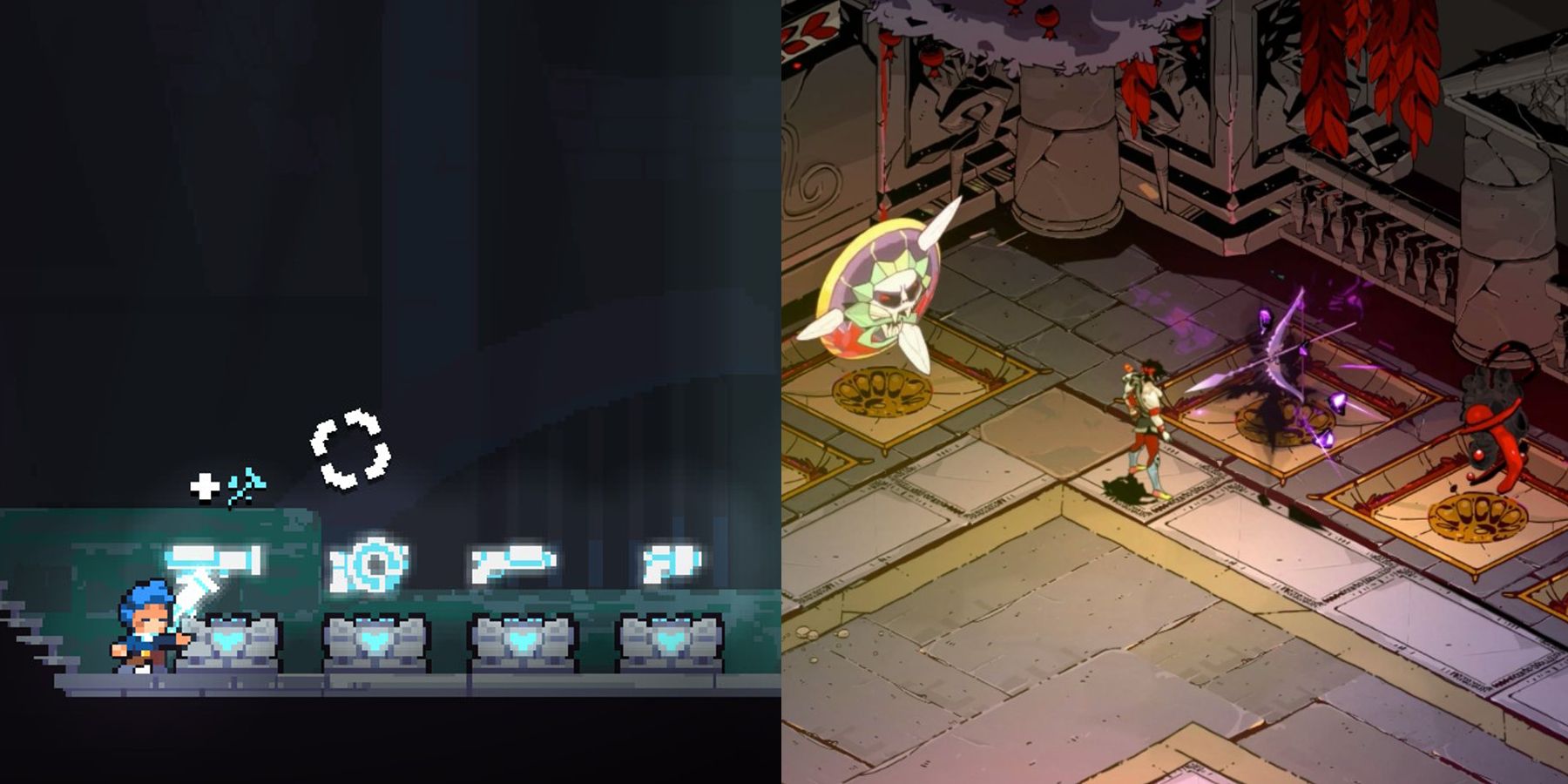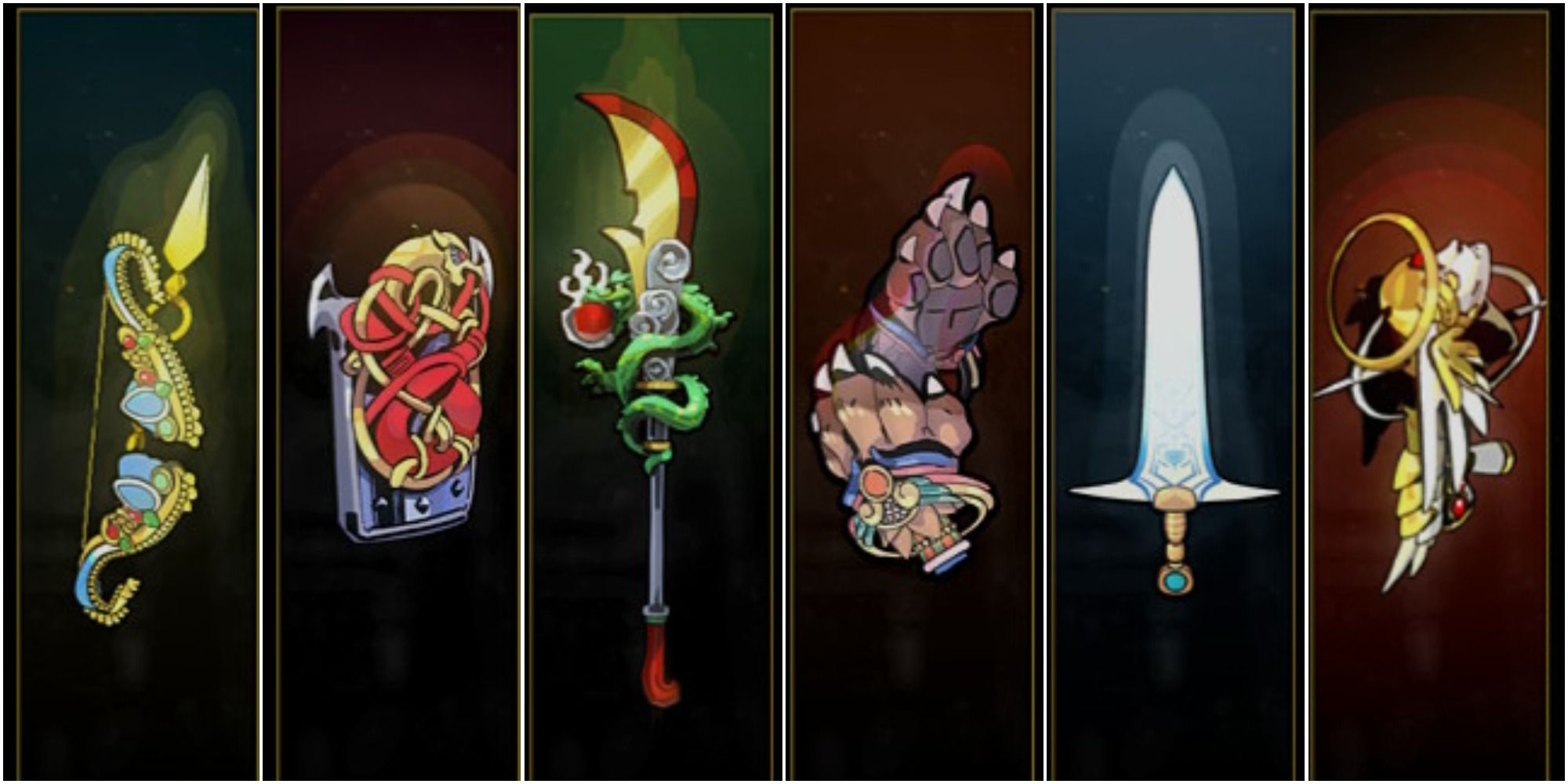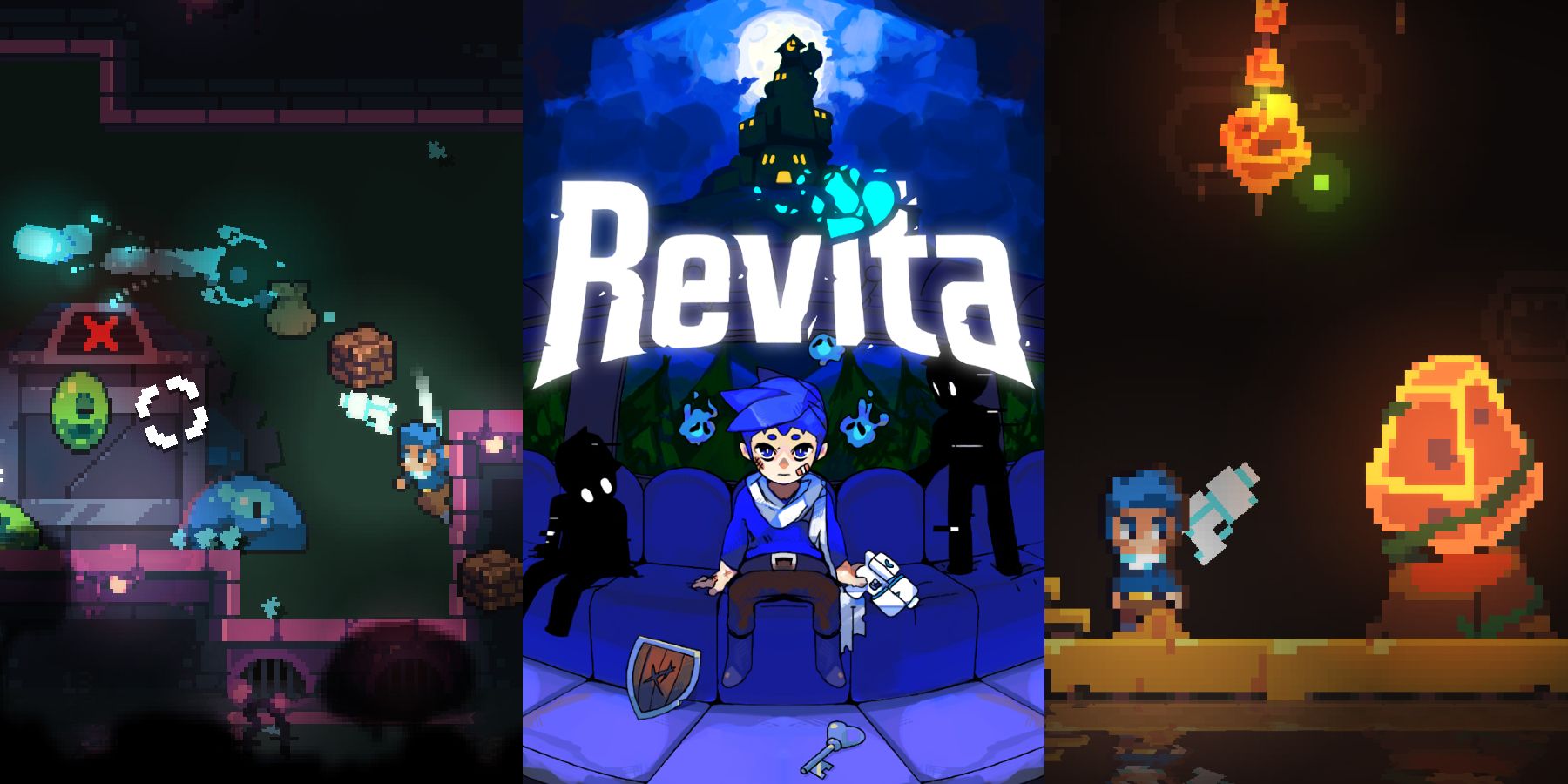Many would balk at the idea of repeating the same actions over and over, but a lot of video games encourage this. Titles like FromSoftware's Dark Souls thrive on players repeating difficult challenges until they've adapted enough to overcome them: catharsis through self-improvement. An entire genre of roguelikes and roguelites have also sprung up around the idea of going through the same trials with hundreds of thousands of permutations, and BenStar's Revita is one of the most recent examples.
Those permutations are key to great roguelikes, as players get a new experience each run despite having the same goal. The slate of enemies or items that augment one's abilities are almost never the same, but their random appearances mean a player can pick up the same item when they see it to develop favored strategies. Yet, Revita and other recent successes like Supergiant Games' Hades are notable for the way they ensure players don't only rely on one strategy, instead providing incentives for branching out and learning every weapon on offer.
Weapon Choices in Revita and Hades
In Hades, Zagreus is the son of the titular Greek god who repeatedly endeavors to escape his father's realm - with each death sending him back down the River Styx. His many extended family members; major names from the Greek pantheon like Zeus, Dionysus, and Artemis; offer boons associated with certain elements and gameplay elements like knockback. The variation Zagreus can achieve is relatively limited, discounting "Duo Boons" conferred by multiple gods, but they may be better or worse in conjunction with one of its six weapon types.
Zagreus begins with a sword, but is soon able to unlock a bow, shield, spear, gauntlets, and a gun - each including variant aspects, like the spear of Achilles. The differences between aspects may change how the shield takes advantage of Zeus' lightning-based boons, but lightning always works similarly. By contrast, roguelikes such as The Binding of Isaac include hundreds of items that radically change how its basic crying attack works, leading to what feel like endless possible attack types.
Revita combines both of these approaches to an extent. Revita Kid starts off with a "Soul Gun" single-shot pistol, and there are over 300 Relics that confer either stat changes or alter the way bullets work. Yet, the basement in hub area Memoria Station has unlockable variations of the Soul Gun: a machine gun, shotgun, rocket launcher, and so on. The bullets for each weapon type are still affected by Relics, but once every variant is unlocked it's easy to imagine players leaning toward something like the fast-firing machine gun and trying to dig up damage-boosting upgrades. Luckily, Revita uses the same bonus system as Hades to encourage diversity.
Using Bonuses for Player Improvement
In both roguelite titles, players will start seeing one weapon singled out before a run. For Hades, one tool in Zagreus' arsenal will take on a purple glow that means it will offer extra Darkness; a currency used with Nyx's Mirror of the Night. For Revita, a particular Soul Gun variant will either offer bonus Soul Coins or materials, each used for a range of services from unlocking new Relics or cosmetics to adding extra room types in The Clocktower.
There's nothing requiring a player to use the weapon with a temporary bonus, so someone who feels Hades' gauntlets or Revita's rocket launcher is their best weapon can stick with it to unlock harder difficulty modifiers; Heat or Lucent Shards, respectively. Yet giving players an incentive to swap often means they'll become well-rounded with the game's mechanics - and more likely to find new item combinations they enjoy.
This kind of system should be more common, though it works better for roguelites - which have a general meta-progression as players accrue currencies to make the game "easier" over time. For example, Subset Games' FTL and Into the Breach are more traditional roguelikes in that players unlock new ships or squads over time, but there's way to make runs easier for everyone beyond learning the game. On the other end, Enter the Gungeon has a few playable characters who all bring back the same Hegemony Credits. Though Enter the Gungeon is more driven by the narrative of each character, meaning repeat runs with any individual are less encouraged after a victory, it's one case where grinding resources would be easier with rotating boosts akin to Revita and Hades.
Revita is available now on PC and Switch.



